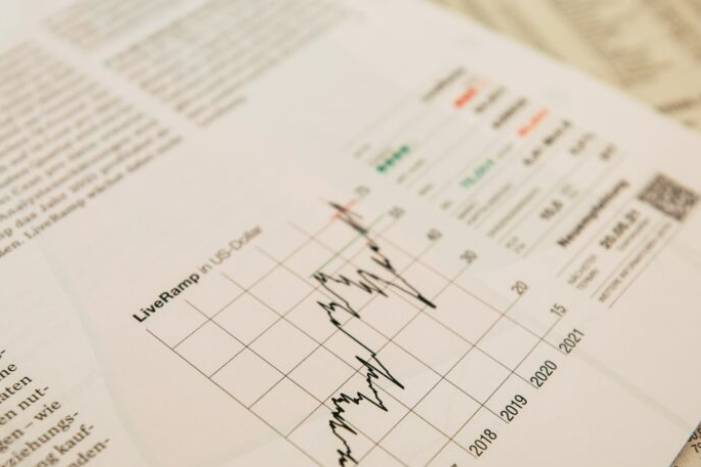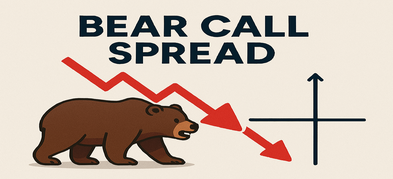Important Information
This website is managed by Ultima Markets’ international entities, and it’s important to emphasise that they are not subject to regulation by the FCA in the UK. Therefore, you must understand that you will not have the FCA’s protection when investing through this website – for example:
- You will not be guaranteed Negative Balance Protection
- You will not be protected by FCA’s leverage restrictions
- You will not have the right to settle disputes via the Financial Ombudsman Service (FOS)
- You will not be protected by Financial Services Compensation Scheme (FSCS)
- Any monies deposited will not be afforded the protection required under the FCA Client Assets Sourcebook. The level of protection for your funds will be determined by the regulations of the relevant local regulator.
Note: Ultima Markets is currently developing a dedicated website for UK clients and expects to onboard UK clients under FCA regulations in 2026.
If you would like to proceed and visit this website, you acknowledge and confirm the following:
- 1.The website is owned by Ultima Markets’ international entities and not by Ultima Markets UK Ltd, which is regulated by the FCA.
- 2.Ultima Markets Limited, or any of the Ultima Markets international entities, are neither based in the UK nor licensed by the FCA.
- 3.You are accessing the website at your own initiative and have not been solicited by Ultima Markets Limited in any way.
- 4.Investing through this website does not grant you the protections provided by the FCA.
- 5.Should you choose to invest through this website or with any of the international Ultima Markets entities, you will be subject to the rules and regulations of the relevant international regulatory authorities, not the FCA.
Ultima Markets wants to make it clear that we are duly licensed and authorised to offer the services and financial derivative products listed on our website. Individuals accessing this website and registering a trading account do so entirely of their own volition and without prior solicitation.
By confirming your decision to proceed with entering the website, you hereby affirm that this decision was solely initiated by you, and no solicitation has been made by any Ultima Markets entity.
I confirm my intention to proceed and enter this websiteWhat Happens If the Dollar Collapses?

Understanding the Potential Economic Shock
The U.S. dollar is the world’s primary reserve currency, trusted globally by governments, banks, and investors. But what if that trust disappears? What happens when the dollar collapses?
A full collapse is unlikely, but risks remain. J.P. Morgan estimates a 40% chance of a U.S. recession by the end of 2025, which could trigger a chain reaction devaluation, inflation, and a loss of global confidence. The economic consequences would be severe.
If such a scenario were to occur, the consequences for assets, investments, and financial stability would be severe.
What Does It Mean When the Dollar Collapses?
A dollar collapse doesn’t mean physical bills vanish. Instead, it refers to a sudden and severe loss of the dollar’s value either due to hyperinflation, global loss of confidence, or an overwhelming debt crisis. If the U.S. dollar were to lose its status as the world’s dominant currency, it could set off a cascade of economic challenges both domestically and abroad.
Why the Dollar Collapses and What Drives It
One of the biggest threats is the national debt crisis. The U.S. government continues borrowing at historic levels, raising concerns about long-term stability.
Gayle Allard, Professor of Economics at IE Business School, warns that if the dollar weakens, the Federal Reserve may raise interest rates to stabilise it. While this could “possibly strengthen the dollar temporarily,” it would also “further reduce U.S. and global growth.”
If confidence erodes, the U.S. could lose its advantage of borrowing cheaply on global markets. Policymakers might resort to printing money to meet obligations. While this offers short-term relief, it risks inflation and devaluation. As Allard notes, this loss of trust could “deprive the United States of the privilege of being able to borrow unlimited amounts at some of the world’s lowest interest rates.”
In short, a debt crisis combined with a global loss of trust could weaken the dollar’s status and threaten both U.S. and global economic stability.
Immediate Effects of a Dollar Collapse

If the dollar collapses, inflation or even hyperinflation would likely follow. Prices for goods would soar as wages lag. Imported goods would become extremely expensive as the dollar’s buying power falls.
Financial markets would face turmoil. The stock market could plunge as investors flee dollar-denominated assets. Interest rates would spike in an attempt to stabilise the currency, making mortgages, loans, and credit far more expensive.
For individuals, this means costlier groceries, higher fuel prices, shrinking retirement savings, and fewer job opportunities. Consumer confidence would collapse, and the economy could contract sharply.
Impact on International Trade
The damage wouldn’t stop at U.S. borders. Because the dollar dominates global transactions, a collapse would disrupt trade and investment worldwide. Countries holding large amounts of U.S. debt such as China and Japan could face major losses, triggering their own crises.
Commodities priced in dollars, like oil and gold, would swing wildly. Other currencies, such as the euro or Chinese yuan, might gain influence, though neither is yet ready to fully replace the dollar. Cryptocurrencies like Bitcoin could attract investors seeking decentralised alternatives.
Higher import costs and broken supply chains would add to economic hardship, as the rising cost of goods further reduces purchasing power.
Long-Term Consequences on the Global Economy

The long-term impact of a U.S. dollar collapse would go far beyond short-term market volatility, triggering fundamental changes in global finance, trade, and geopolitics.
Reconfiguration of Global Power
A collapse of the U.S. dollar would dramatically shift global power dynamics. Currently, the dollar serves as the world’s dominant reserve currency, but growing de-dollarisation efforts suggest that some nations are preparing for alternatives. Countries such as China, Russia, and members of the BRICS bloc have been promoting the use of local currencies for trade and developing financial systems that reduce reliance on the U.S. dollar. For example, China has expanded the international use of the yuan through the Belt and Road Initiative and energy trade agreements, while Russia has increasingly settled oil and gas exports in rubles and yuan.
If confidence in the dollar erodes, these efforts could accelerate, giving rise to a more multipolar global currency system where power is distributed among several economic blocs rather than dominated by the U.S.
According to Gayle Allard, Professor of Economics at IE Business School, rising national debt is the primary threat to the dollar’s stability. If the dollar weakens, the U.S. may respond with higher interest rates to temporarily strengthen it. However, this would “further reduce U.S. and global growth” and could strip the U.S. of the unique advantage of borrowing cheaply on a global scale.
Changes in Reserve Currency Status
The dollar’s role as the world’s reserve currency has long given the U.S. economic leverage. But excessive national debt, inflation, and eroding international confidence could threaten that status. If major debt holders, like China or Japan, begin offloading U.S. debt, it could trigger global panic and deepen recession risks.
Rise of Alternative Currencies
With a weakened dollar, investors might flock to other currencies or assets. Over the past 40 years, the Swiss franc has outperformed the dollar, making it a compelling option. Other alternatives include:
- Commodities like gold and silver
- Cryptocurrencies such as Bitcoin
- Real estate
- Hard assets like fine art or wine
Cryptocurrencies, often dubbed “digital gold,” provide a decentralised hedge against inflation, especially appealing in regions with unstable local currencies.
How Can You Protect Yourself?
Even if a full collapse doesn’t occur, periods of high inflation and economic instability can still damage personal finances. That’s why diversification is key.
Rather than keeping all assets in cash or dollar-based accounts, some financial advisors suggest spreading wealth across various asset classes. This might include real estate, commodities like gold, or investments in foreign markets. Interestingly enough, real estate is actually considered as a low-risk investment option that may hold value during economic downturns and currency instability. Some individuals also consider cryptocurrencies, though they remain highly volatile and speculative.
It’s also wise to build an emergency fund ideally covering three to six months of living expenses. Reducing high-interest debt can give you greater financial flexibility during uncertain times. And for those concerned about shortages, keeping a modest supply of essentials such as non-perishable food and medications could offer peace of mind.
Disclaimer: This content is provided for informational purposes only and does not constitute, and should not be construed as, financial, investment, or other professional advice. No statement or opinion contained here in should be considered a recommendation by Ultima Markets or the author regarding any specific investment product, strategy, or transaction. Readers are advised not to rely solely on this material when making investment decisions and should seek independent advice where appropriate.












